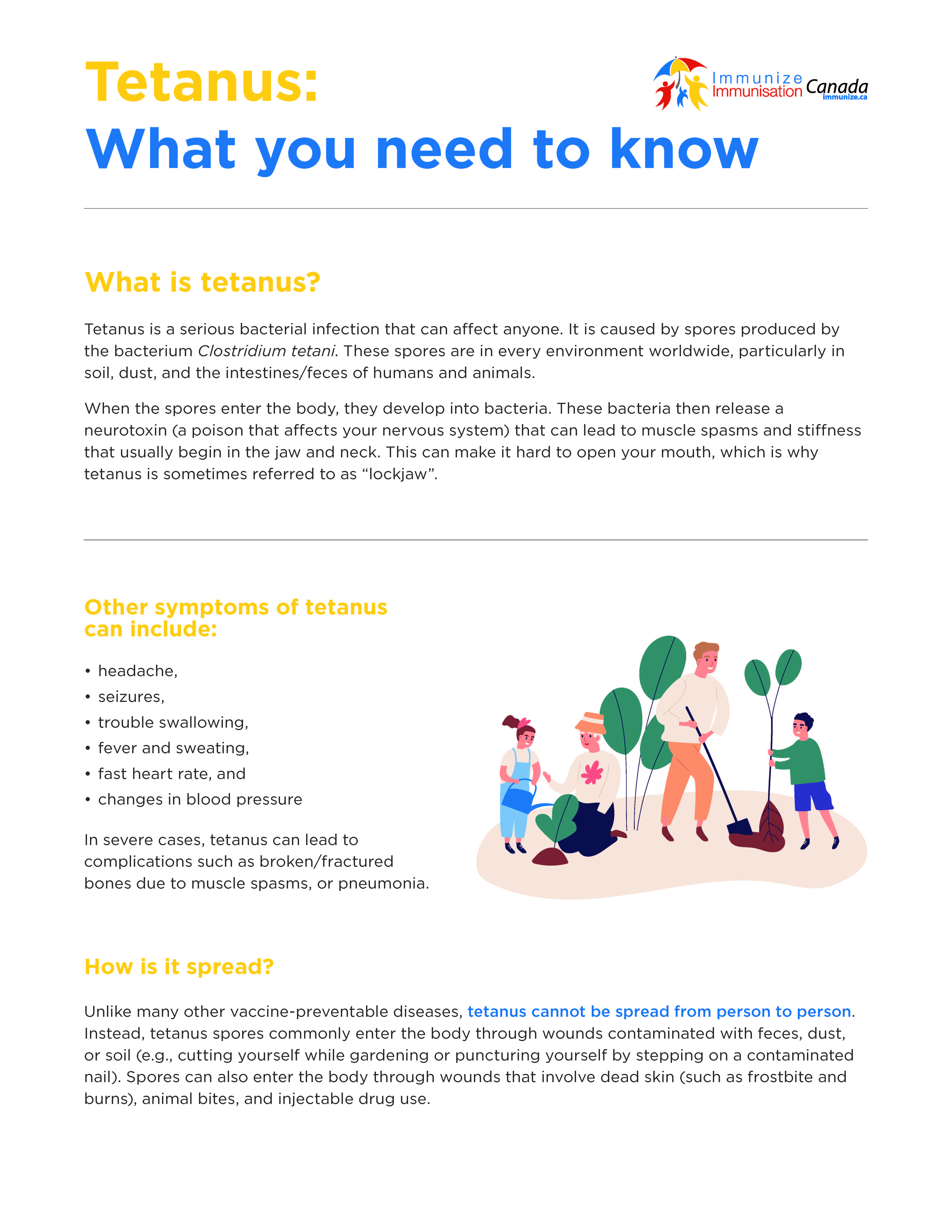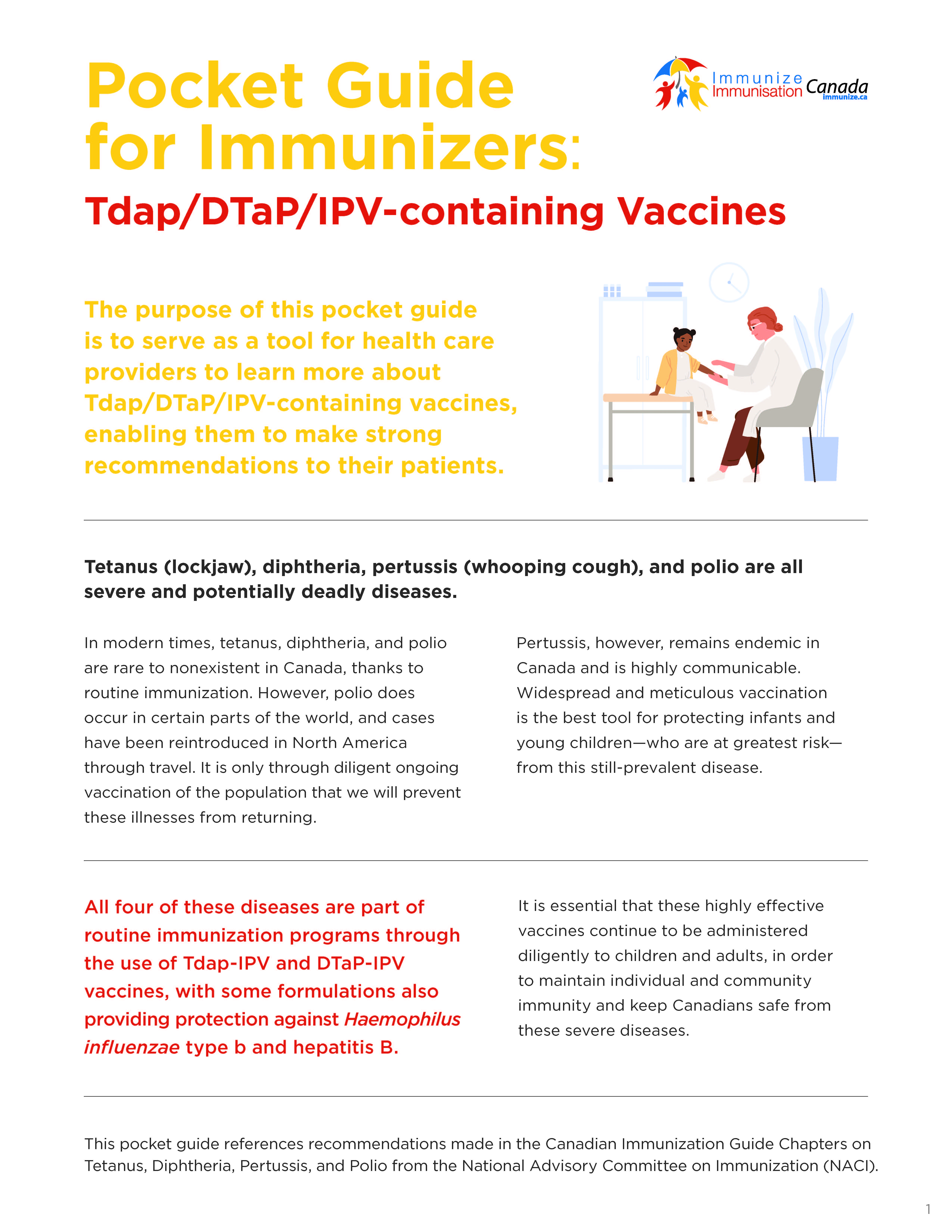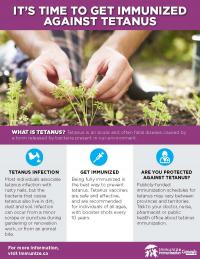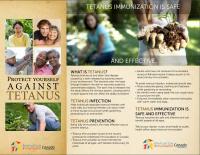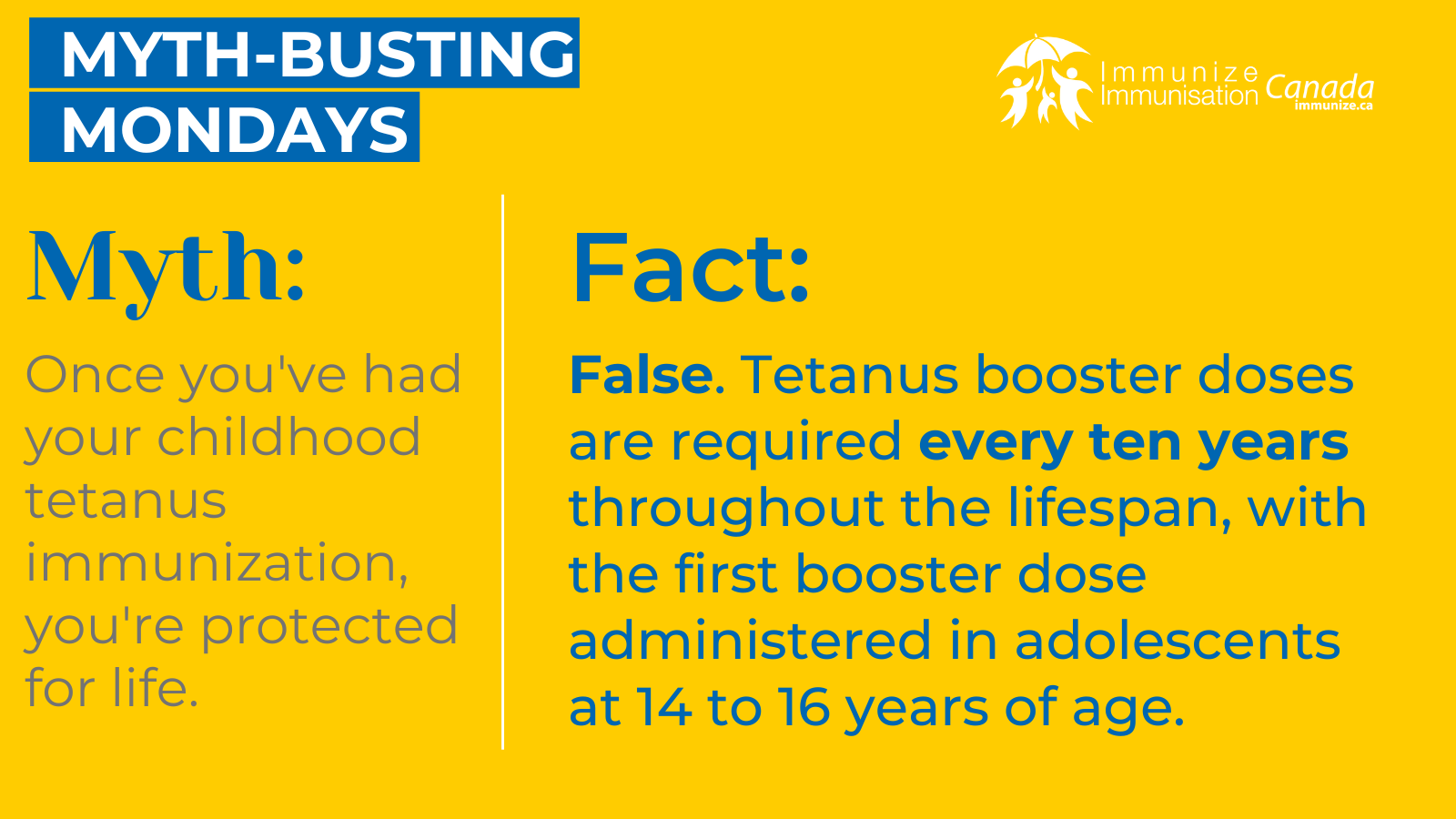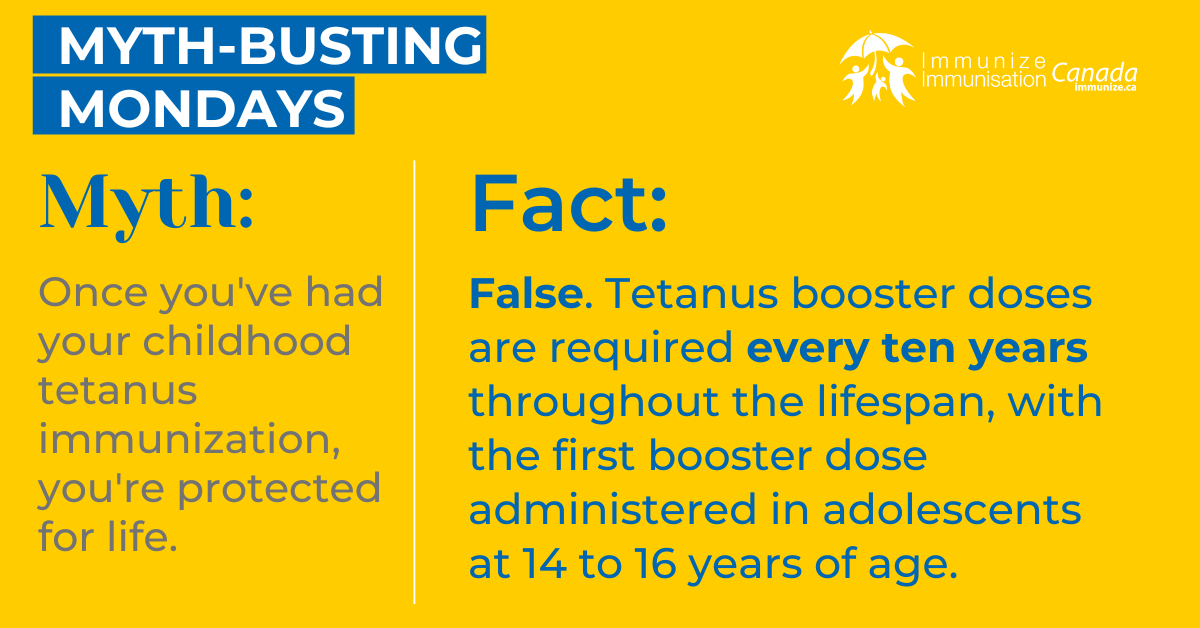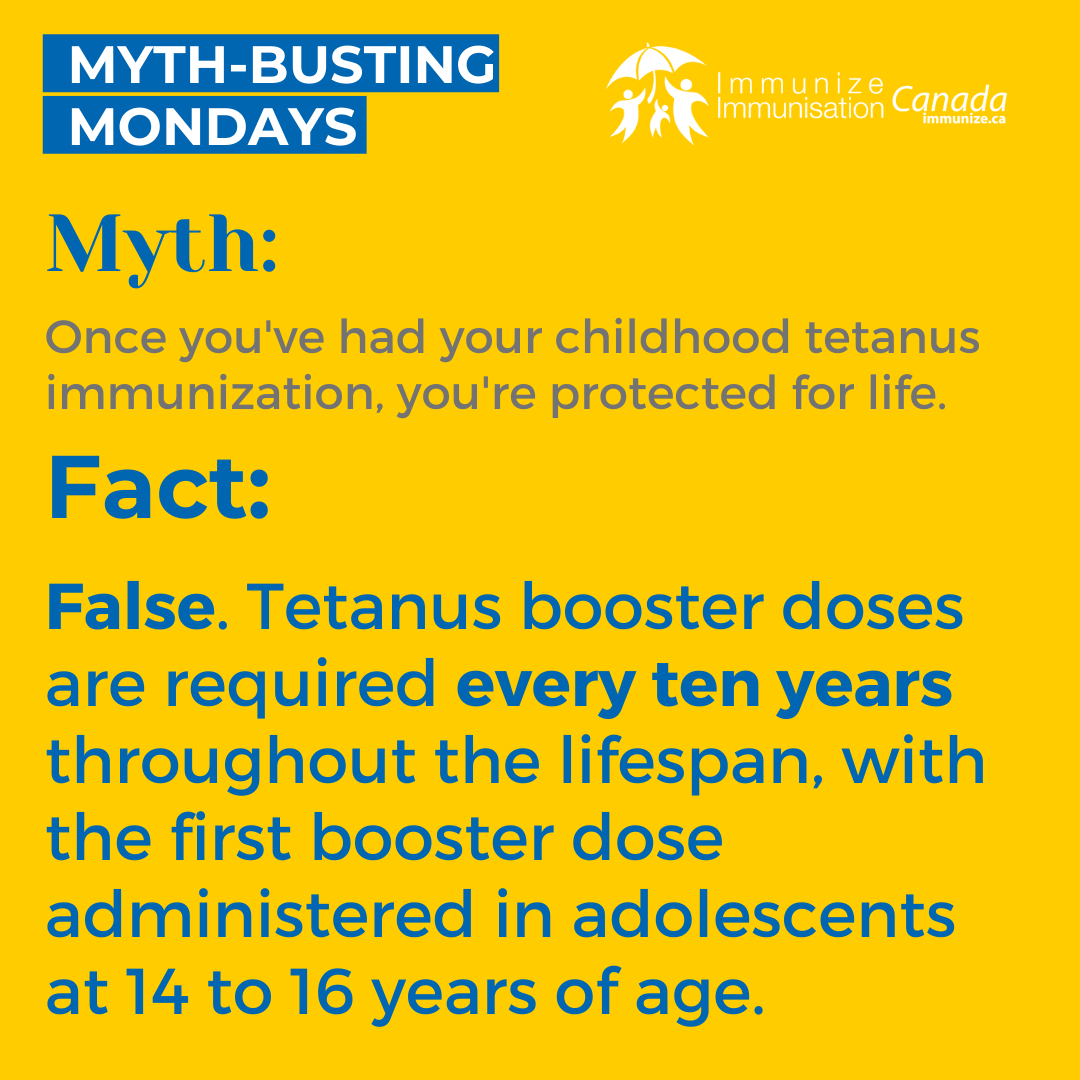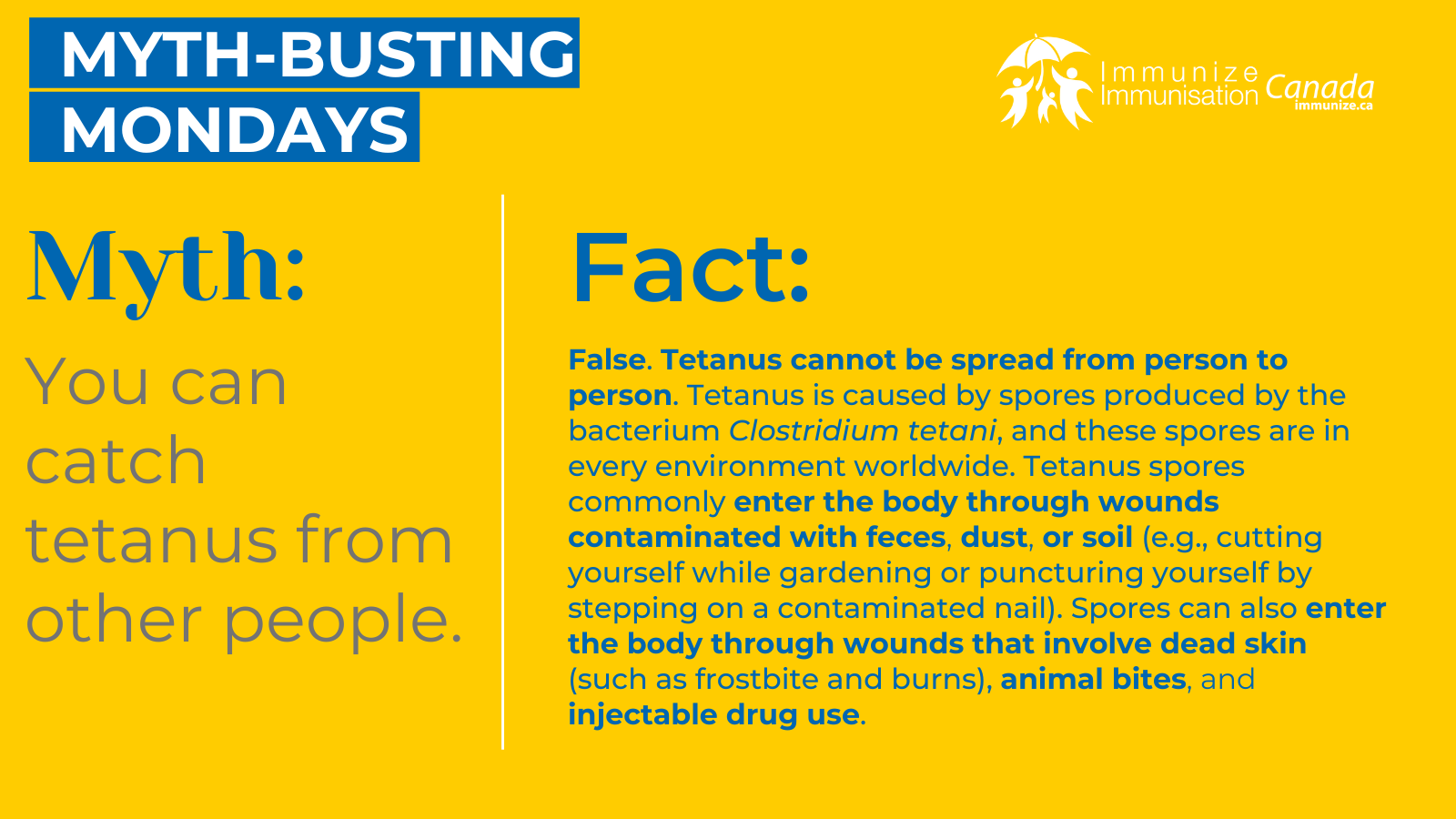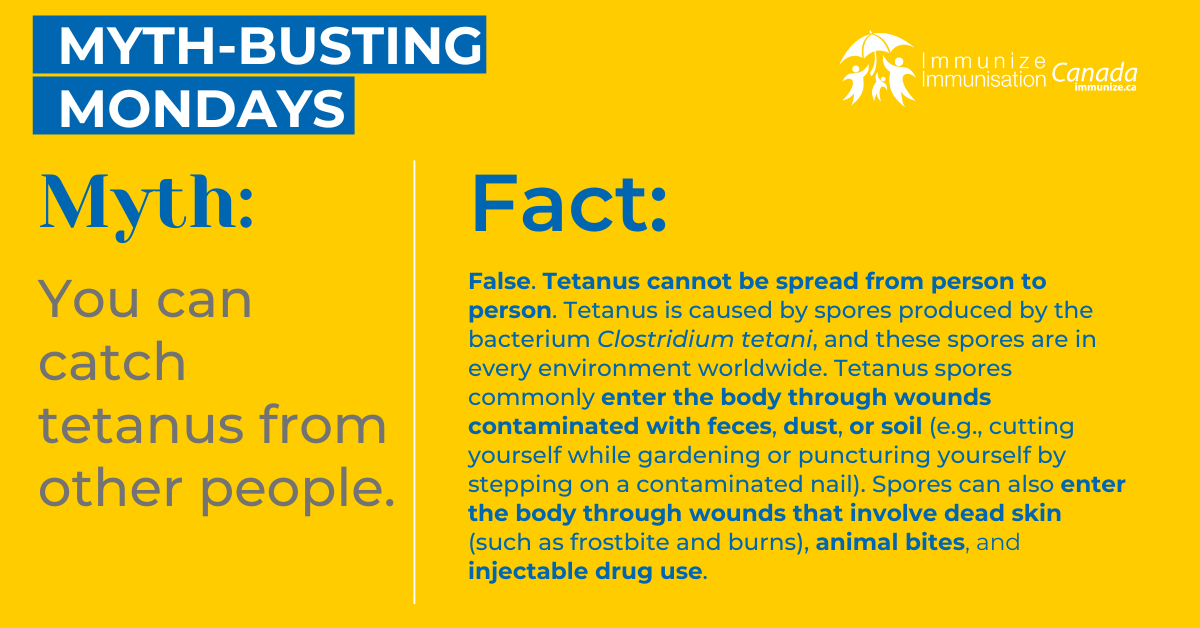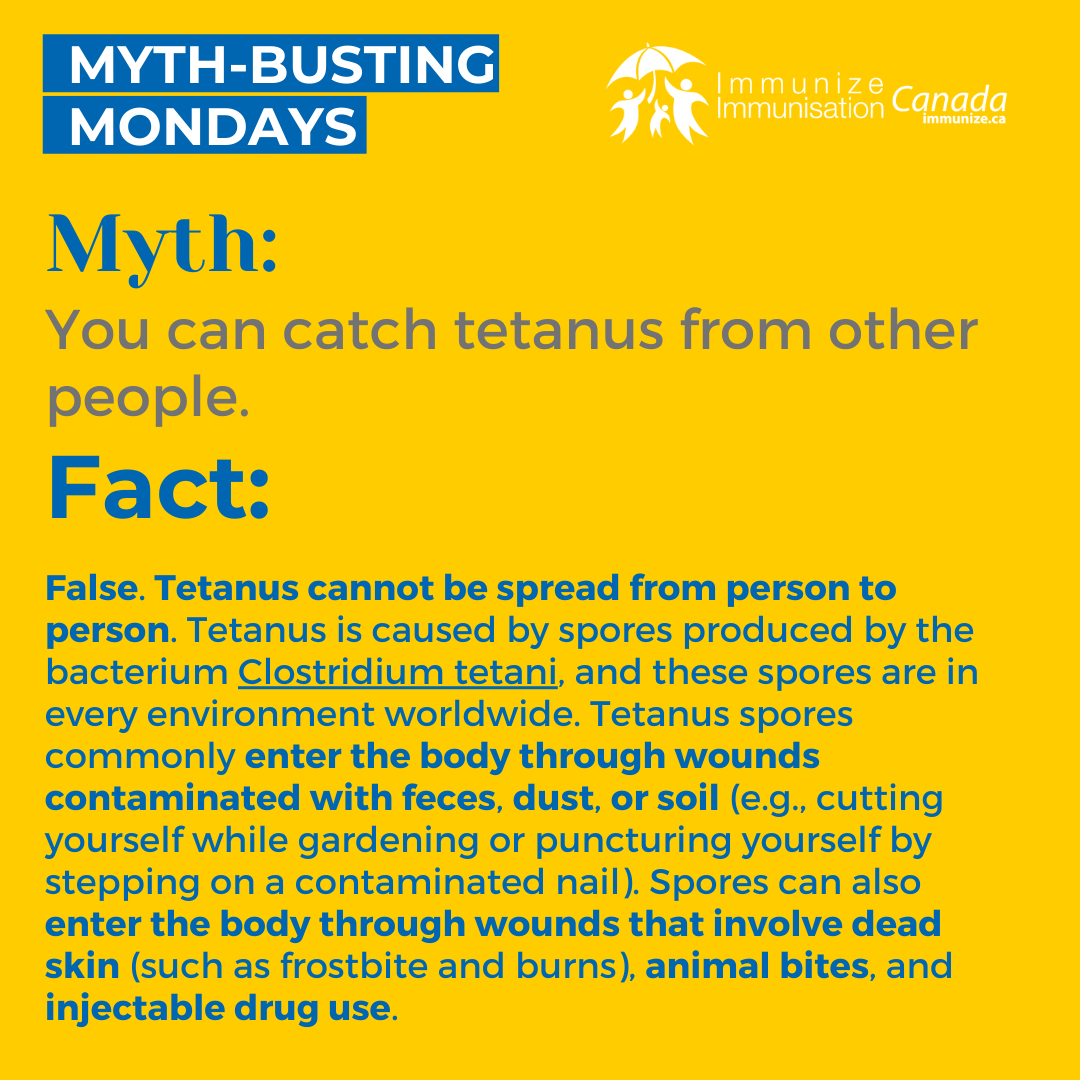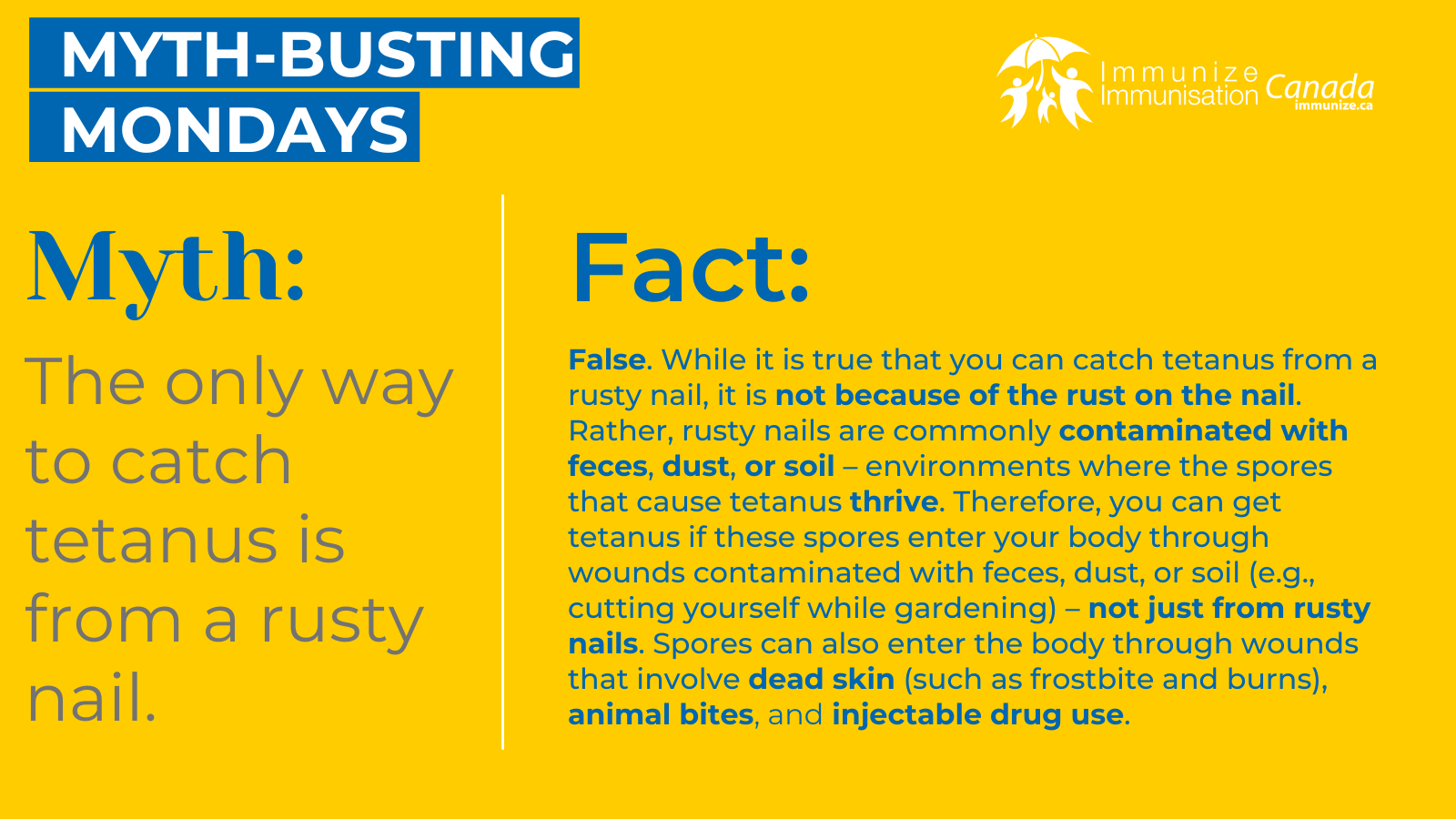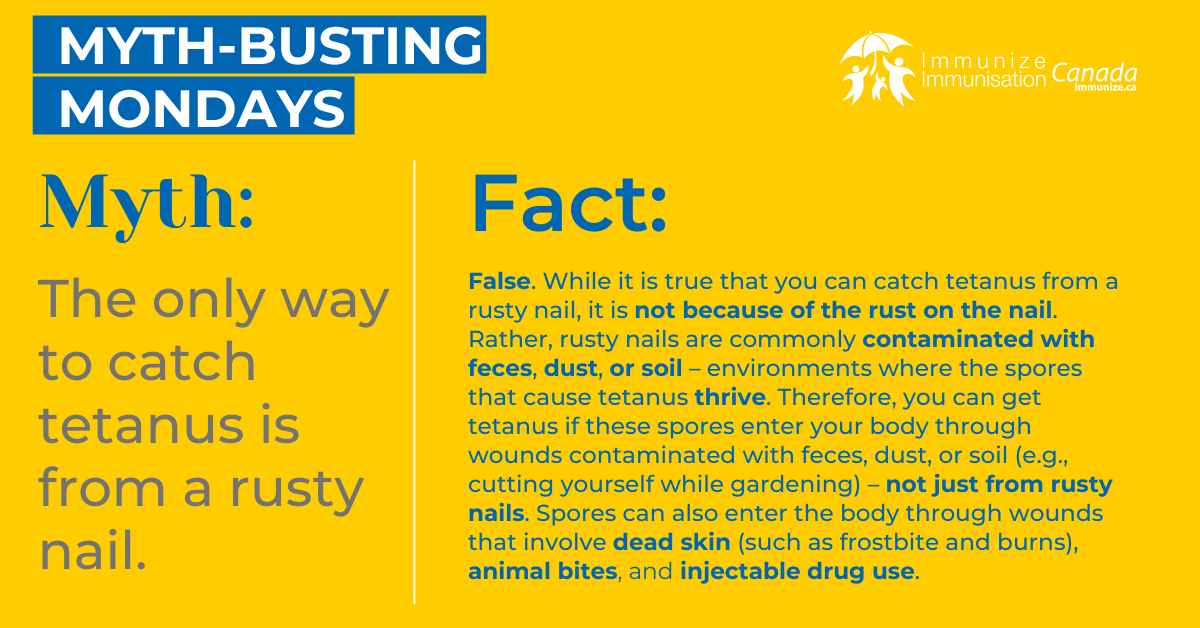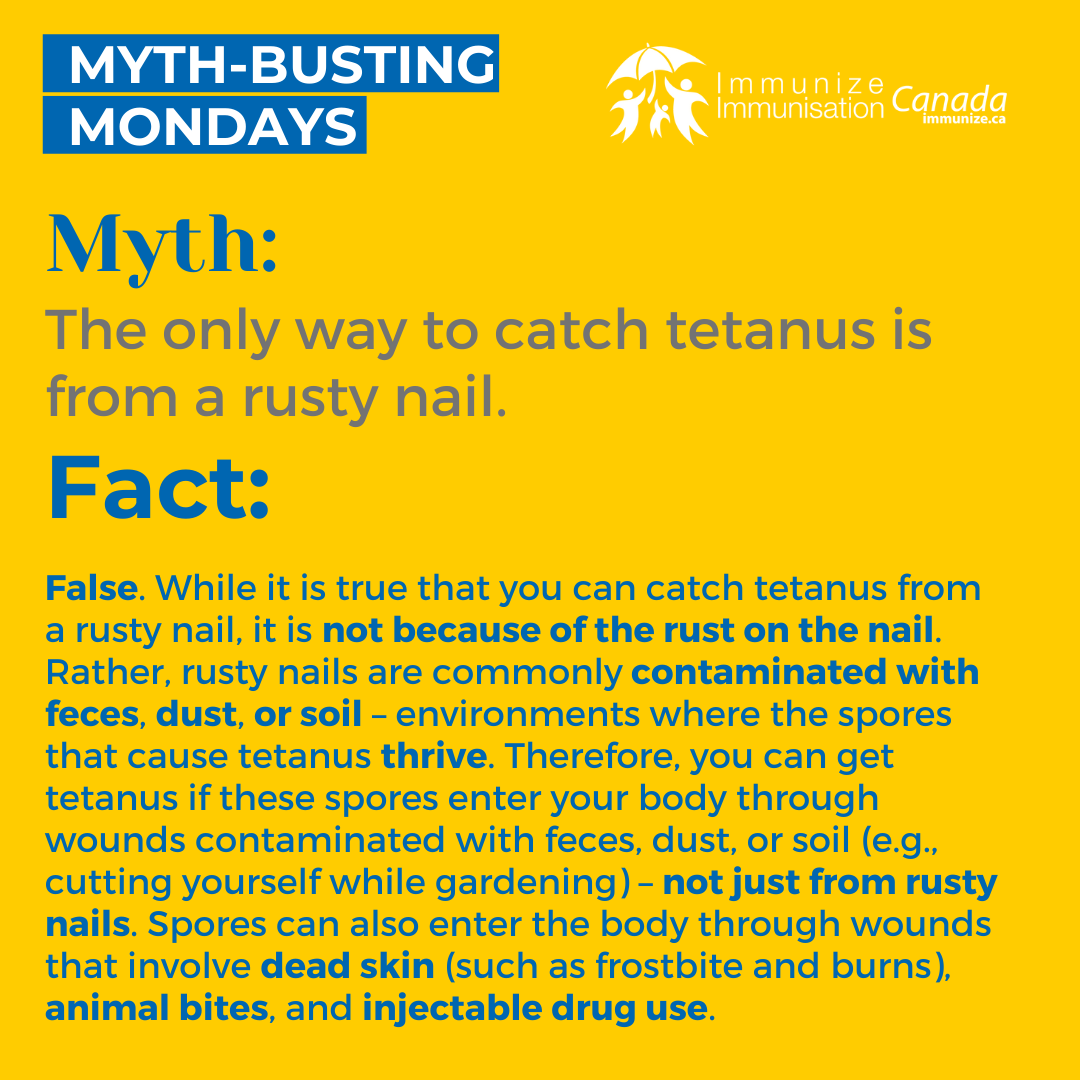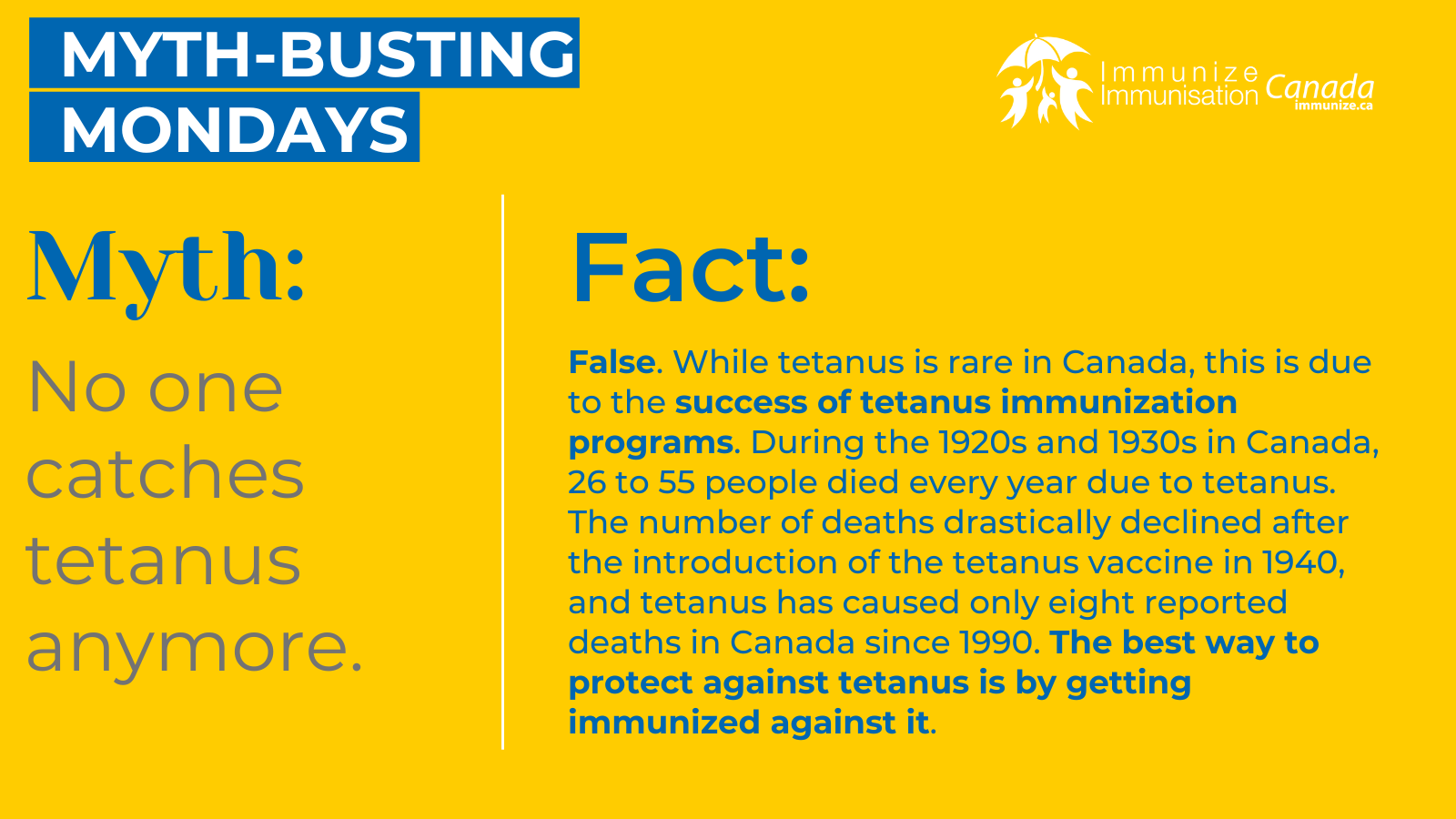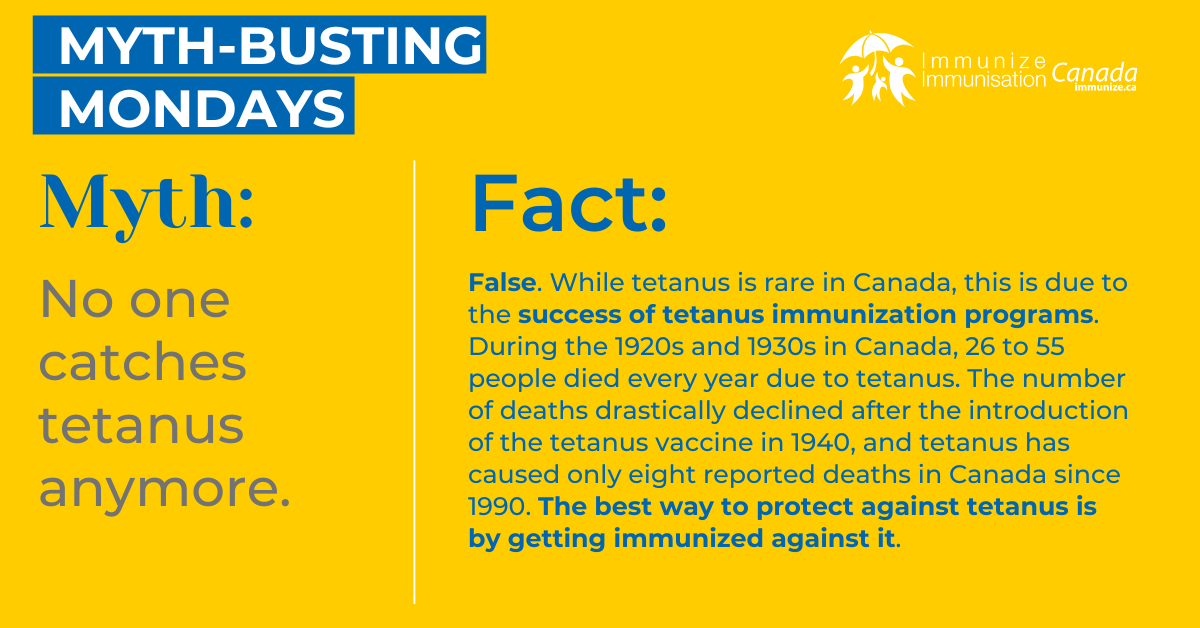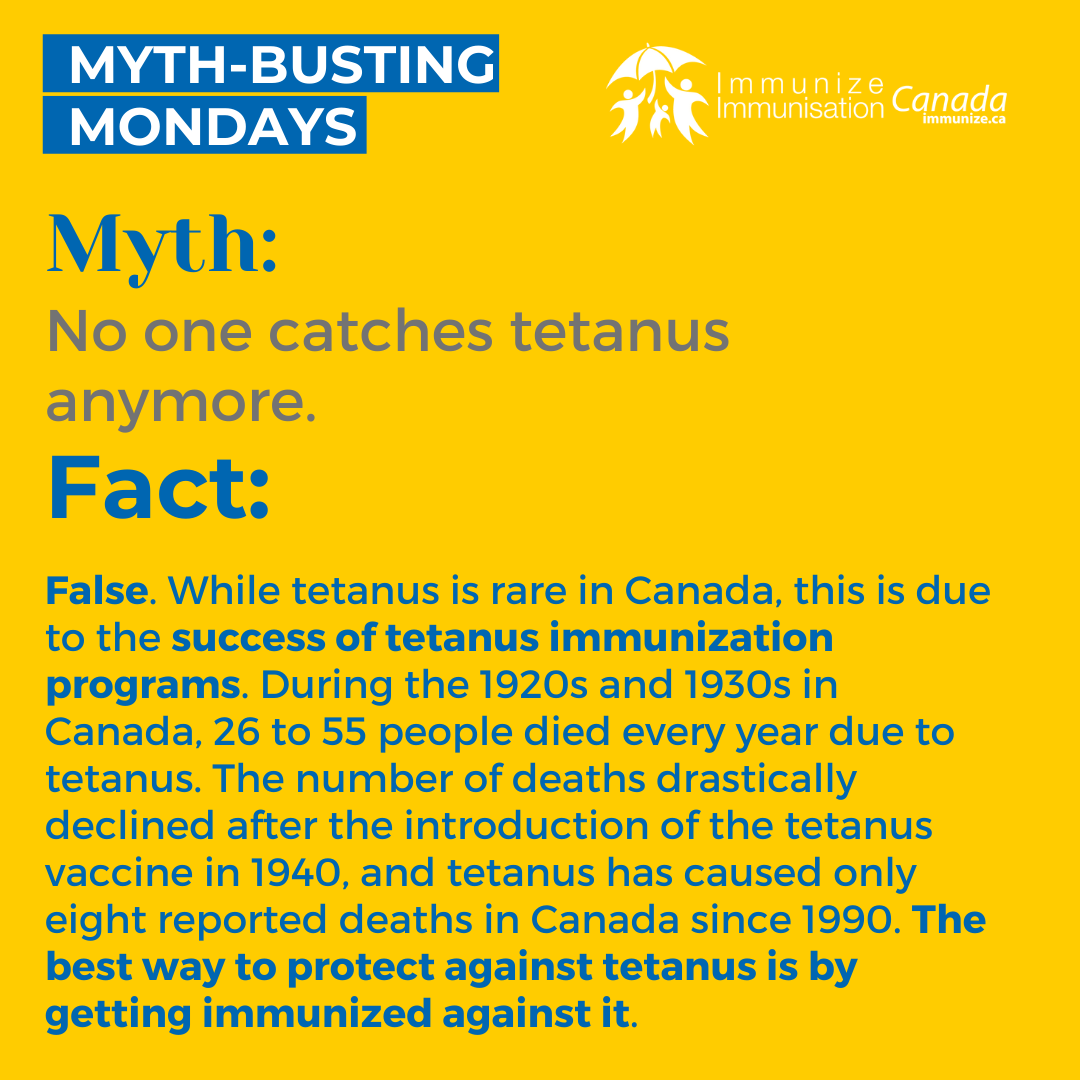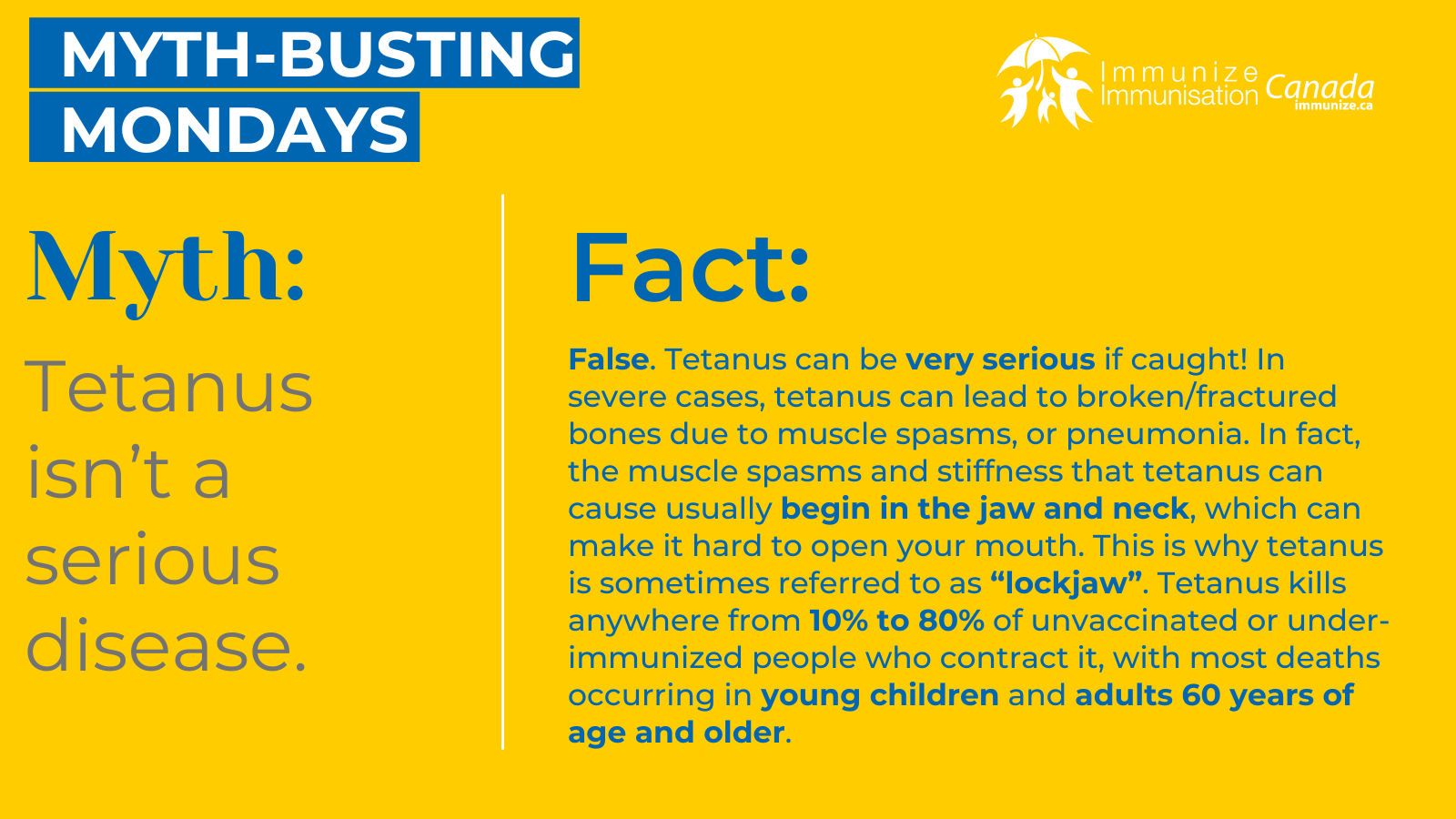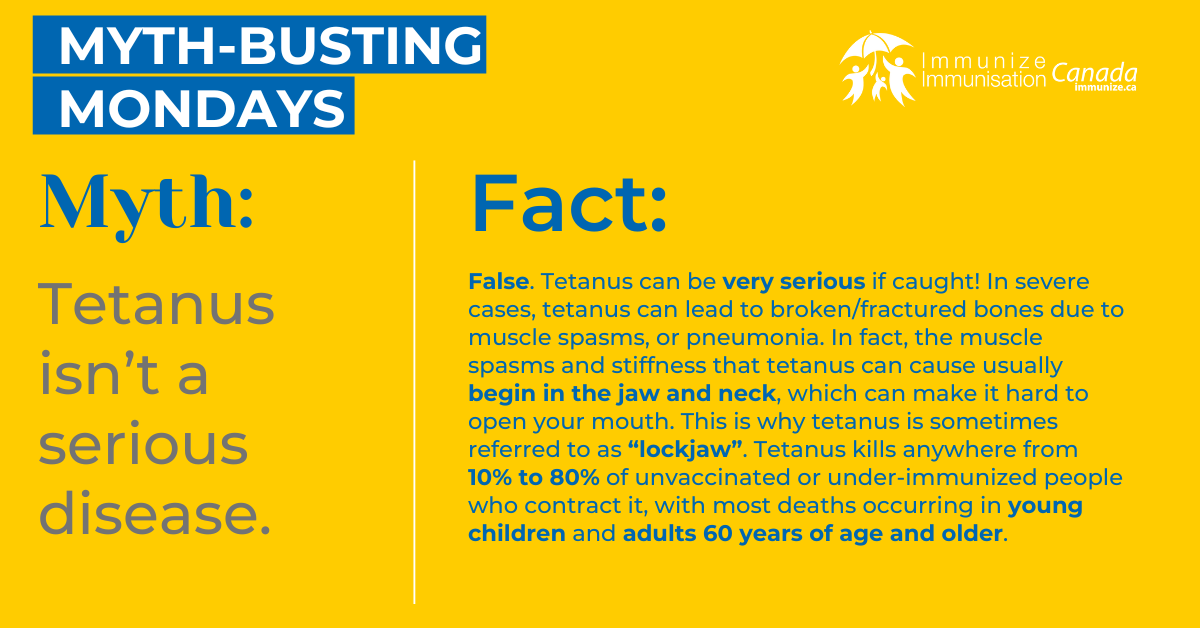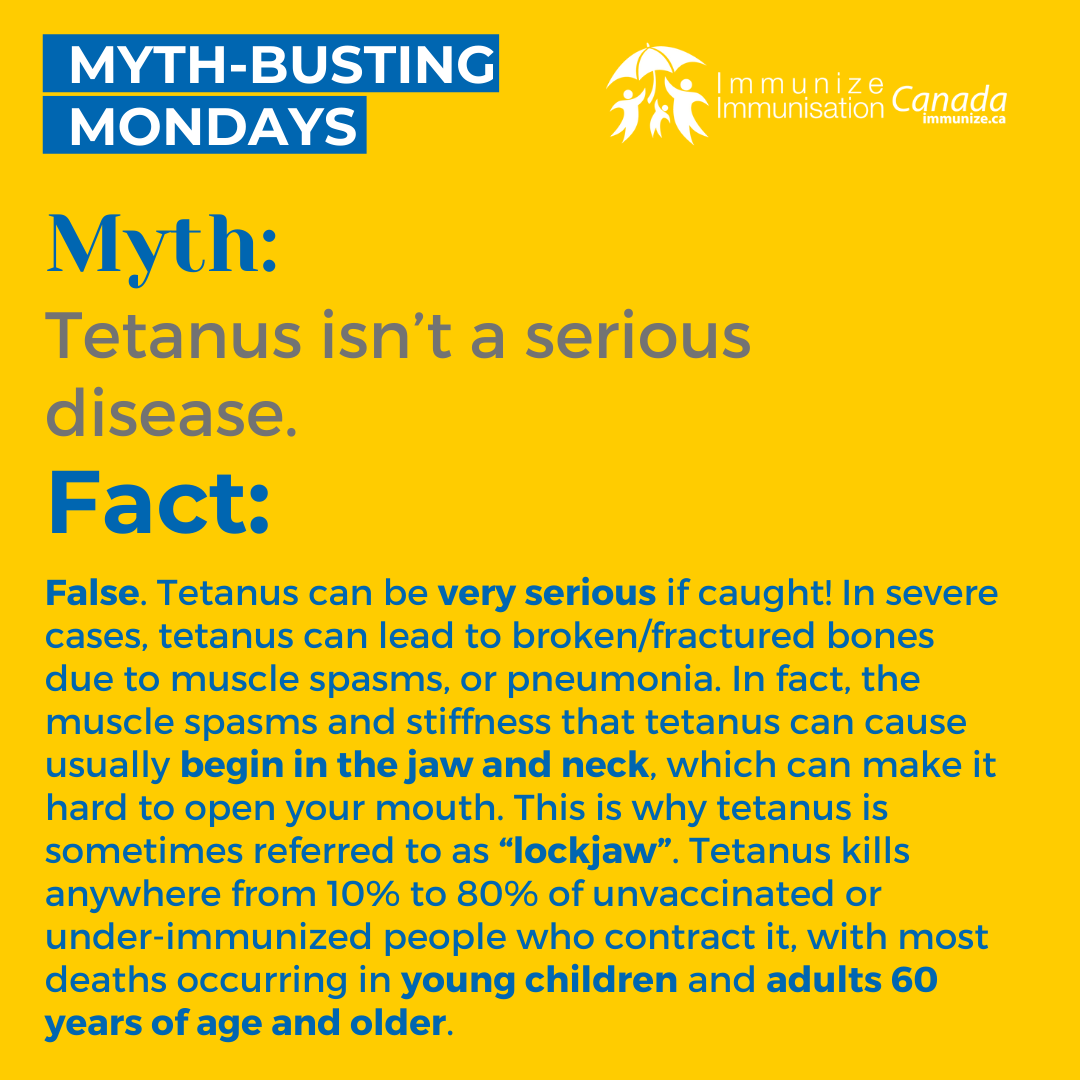Tetanus
Tetanus is a serious bacterial infection that can affect anyone. It is caused by spores produced by the bacterium Clostridium tetani. These spores are in every environment worldwide, particularly in soil, dust, and the intestines/feces of humans and animals. When the spores enter the body, they develop into bacteria. These bacteria then release a neurotoxin (a poison that affects your nervous system) that can lead to muscle spasms and stiffness that usually begin in the jaw and neck. This can make it hard to open your mouth, which is why tetanus is sometimes referred to as “lockjaw”.
Other symptoms of tetanus can include headache, seizures, trouble swallowing, fever and sweating, fast heart rate, and changes in blood pressure. In severe cases, tetanus can lead to complications such as broken/fractured bones due to muscle spasms, or pneumonia.
Unlike many other vaccine-preventable diseases, tetanus cannot be spread from person to person. Instead, tetanus spores commonly enter the body through wounds contaminated with feces, dust, or soil (e.g., cutting yourself while gardening or puncturing yourself by stepping on a contaminated nail). Spores can also enter the body through wounds that involve dead skin (such as frostbite and burns), animal bites, and injectable drug use.
Check out our resources on tetanus immunization and share with your network!
Campaigns and Awareness Materials
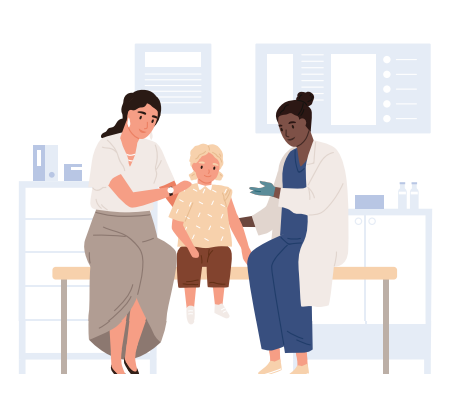
For the Public
For Healthcare Professionals
Pocket Guide for Immunizers
The purpose of this pocket guide is to serve as a tool for health care providers to learn more about Tdap/DTaP/IPV-containing vaccines, enabling them to make strong recommendations to their patients.
This pocket guide references recommendations made in the Canadian Immunization Guide Chapters on Tetanus, Diphtheria, Pertussis, and Polio, from the National Advisory Committee on Immunization (NACI).
NACI Statements
Summary of NACI statement of February 13, 2025: Updated recommenadtions on measles post-exposure prophylaxis. 13 February 2025. National Advisory Committee on Immunization (NACI).
Campaigns and Awareness Materials
Poster and Pamphlet
Video
Tetanus. Protect yourself. Get immunized.


